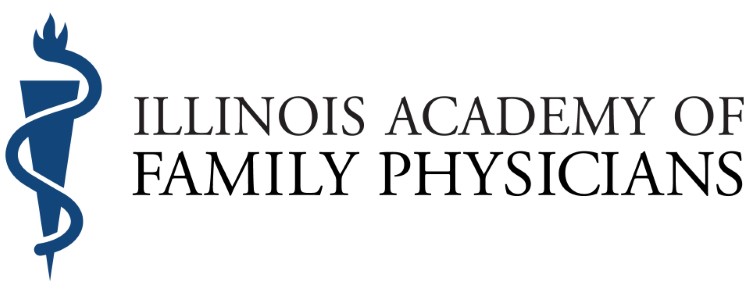Ms. Chaudhry is an IAFP Public Health Extern working with the Public Health Committee Infection Prevention Workgroup. If you would like to join the Public Health Committee, please visit our website sign-up form.
IAFP and Wisconsin AFP are hosting a webinar on the 2021 recommendations Weds., Feb. 17, 8 p.m. CT. Paul Hunter, MD, a recent voting member of ACIP and family physician at University of Wisconsin is the presenter. Click here to register.
Updates to the following Immunization Schedules
- The Recommended Child and Adolescent Immunization Schedule, United States, 2021, for ages 18 years or younger.
- The Recommended Adult Immunization Schedule, United States, 2021, for ages 19 years and older.
The Centers for Disease Control and Prevention (CDC) updates recommended vaccinations annually after review by the Advisory Committee on Immunization Practices (ACIP). During the COVID-19 pandemic, CDC recommended primary care clinicians continue advocating for scheduled vaccinations and make them available to their patients. Several 2021 updates were made at the October ACIP meeting. The updates include recommendations for the use of DTaP/Tdap/Td, Hepatitis A, Influenza, and Meningococcal vaccines. At the December meeting, ACIP recommended offering the COVID-19 vaccination in Phase 1a to health care personnel and residents of long-term care facilities once authorized by the Food and Drug Administration (FDA).
DTaP/Tdap/Td
The 2021 recommendations allow the use of either tetanus and diphtheria toxoids (Td) vaccine or Tdap for the decennial Td booster, tetanus prophylaxis for wound management, and additional required doses in the catch-up immunization schedule if a person has received at least 1 Tdap dose. Allowing for use of either Tdap or Td provides greater flexibility at the point-of-care.
https://www.cdc.gov/vaccines/hcp/acip-recs/vacc-specific/dtap.html
Hepatitis A
The Hepatitis A vaccine is recommended for the following groups:
- Infants aged 6-11 months traveling outside the United States
- Persons aged >40 years
- Persons with immunocompromising conditions
- Persons with chronic liver disease planning on traveling
- Persons with HIV infection
- Pregnant women
- Postexposure Prophylaxis
- Vaccination during outbreaks
The CDC no longer recommends vaccination of persons who receive blood products for clotting disorders (for example, hemophilia) as the risk for Hepatitis A virus (HAV) transmission via transfusion of blood products among persons with clotting disorders is now considered the same as that among the general population, and source plasma is now screened for HAV.
https://www.cdc.gov/vaccines/hcp/acip-recs/vacc-specific/hepa.html#recs
Influenza
Routine annual influenza vaccination is recommended for all persons aged ≥6 months who do not have contraindications. Ideally, all persons should receive the vaccine by the end of October. Most influenza vaccines available for the 2020–21 season are quadrivalent, with the exception of MF59-adjuvanted IIV, which is available in both quadrivalent and trivalent formulations. Vaccination should continue to be offered as long as influenza viruses are circulating and unexpired vaccine is available. It is anticipated that SARS-CoV-2 and influenza viruses will both be active is the US during the 2020-21 influenza season.
https://www.cdc.gov/vaccines/hcp/acip-recs/vacc-specific/flu.html
Meningococcal
The ACIP recommends routine administration of a MenACWY vaccine for all persons aged 11-18 years. Additional recommendation is made for MenB vaccine series for persons aged 16-23 years on the basis of shared clinical decision-making to provide short-term protection against most strains of serogroup B meningococcal disease. Considerations for MenB vaccine administration may include: increased risk among college students, especially those who are freshmen, attend a 4-year university, live in on-campus housing, or participate in sororities and fraternities. However, there are a low number of serogroup B meningococcal disease cases annually among persons aged 16-23 years in the United States and there is a relatively short duration of MenB protection with vaccination (antibody waning within 1-2 years post-completion of vaccine series).
https://www.cdc.gov/vaccines/hcp/acip-recs/vacc-specific/mening.html
Resources
General Best Practice Guidelines for Immunization
Adult Immunization Schedule
Birth Through Age 18 Immunization Schedule
References:
Grohskopf LA, Alyanak E, Broder KR, et al. Prevention and Control of Seasonal Influenza with Vaccines: Recommendations of the Advisory Committee on Immunization Practices — United States, 2020–21 Influenza Season. MMWR Recomm Rep 2020;69(No. RR-8):1–24. DOI: http://dx.doi.org/10.15585/mmwr.rr6908a1.
Havers FP, Moro PL, Hunter P, Hariri S, Bernstein H. Use of Tetanus Toxoid, Reduced Diphtheria Toxoid, and Acellular Pertussis Vaccines: Updated Recommendations of the Advisory Committee on Immunization Practices — United States, 2019. MMWR Morb Mortal Wkly Rep 2020;69:77–83. DOI: http://dx.doi.org/10.15585/mmwr.mm6903a5.
Mbaeyi SA, Bozio CH, Duffy J, et al. Meningococcal Vaccination: Recommendations of the Advisory Committee on Immunization Practices, United States, 2020. MMWR Recomm Rep 2020;69(No. RR-9):1–41. DOI: http://dx.doi.org/10.15585/mmwr.rr6909a1.
Nelson NP, Weng MK, Hofmeister MG, et al. Prevention of Hepatitis A Virus Infection in the United States: Recommendations of the Advisory Committee on Immunization Practices, 2020. MMWR Recomm Rep 2020;69(No. RR-5):1–38. DOI: http://dx.doi.org/10.15585/mmwr.rr6905a1.



